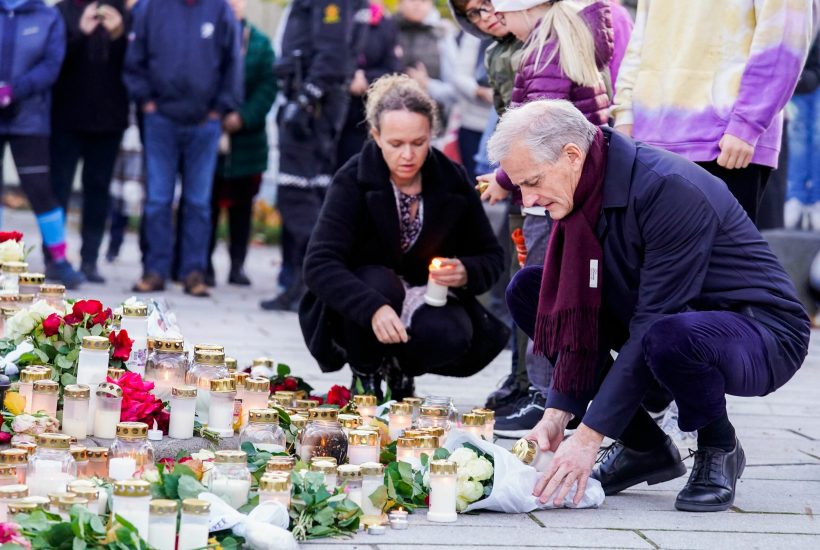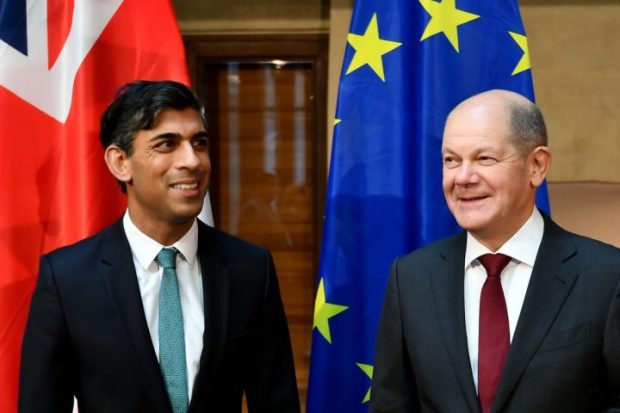It is no huge surprise Ali Harbi Ali, the man arrested on suspicion of the murder of David Amess, had reportedly been referred to the anti-terrorism ‘Prevent’ programme some years ago. We don’t yet know if he was a ‘lone wolf’ type made psychotic by cannabis use and then radicalised online, as the new generation of Muslim terrorists so often are. Police are treating the murder as a terrorist incident ‘potentially linked to Islamic extremism’ and Harbi Ali is being held under the Terrorism Act.
The British-born Ali (whose father used to advise the Somali Prime Minister) wasn’t known to MI5, so wasn’t one of the 3,000 ‘subjects of interest’ on its radar. Nor does being referred to Prevent, on its own, confer ‘terror suspect’ status. About 6,000 referrals are made a year on the strength of suspicious behaviour (social media posts, statements etc). A lot remains unknown.
It’s fair to say, though, that the murderer probably wasn’t inspired by Angela Rayner calling Tories ‘scum’, nor a COVID conspiracy theorist, nor someone furious with Sir David’s pro-life views (although some reports do say said Amess’s Catholicism might have been a motivating factor). But we don’t need events in Britain to show us that Islamist terrorism is still very much with us. It’s the way we react to it that has changed. We don’t talk about Islamism as much as we did. Jihadist terrorism is less frequently on the front pages. Amid the panics about populism and pandemic, it has slipped down the news agendas.
Yet worldwide, it seems to be regaining momentum. In Norway, on Wednesday, an Islamist nutjob killed five people and wounded two others with a bow and arrow. It occupied the news cycle for a matter of hours. Ministers are warning of a new terrorism wave as various deranged men-children emerge from months spent inside and online thanks to COVID-19.
In Britain, we are lucky in that the number of Islamic terrorist incidents has so far remained relatively low. Amess’s death is particularly poignant because it is the first Islamist atrocity in a Christian church in Britain. We had a spike in 2017, when three separate attacks caused multiple deaths: in Westminster (6 dead), Manchester (23 dead), and London Bridge (11 dead).
In France, Islamism strikes with more frequency: 56 different attacks have occurred since 2012, killing 302. Across the globe, Islamism continues to cause carnage. The worst hit countries are still those with Muslim majorities: Iraq, Afghanistan, Nigeria, Syria and Somalia. We can be grateful we don’t have to live with similar levels of fear, but in a globalised world, Islamism still travels to most corners of the world.
David Cameron got many things wrong, but he was right when he said the clash between our secular culture and Islamic extremism was ‘the struggle of our generation.’ It could be the struggle of the next, too.
Got something to add? Join the discussion and comment below.
Get 10 issues for just $10
Subscribe to The Spectator Australia today for the next 10 magazine issues, plus full online access, for just $10.





















Comments
Don't miss out
Join the conversation with other Spectator Australia readers. Subscribe to leave a comment.
SUBSCRIBEAlready a subscriber? Log in